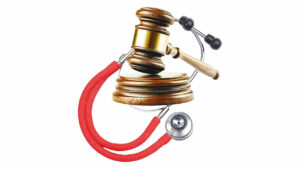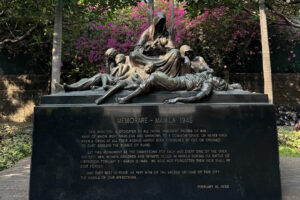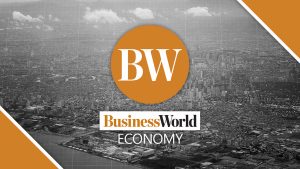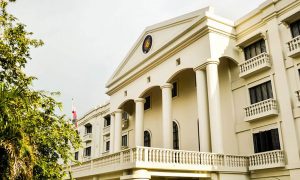The PhilHealth case and the Supreme Court

How will the Supreme Court decide on the several petitions for it to declare unconstitutional the transfer of Philippine Health Insurance Corp. or PhilHealth funds (as well as the funds of other government-owned or -controlled corporations like the Philippine Deposit Insurance Corp.) to the National Government?
The first of the oral arguments held on Feb. 4 provides a glimpse of what constitutes undeniable premises, persuasive reasoning, and plausible determiners.
Among other legal reasons, the petitions assert that a special provision in the General Appropriations Act (GAA) of 2024 and the concomitant Department of Finance (DoF) Circular 003-2024 violate the Constitution for being a rider. That is, the Constitution prohibits a provision being attached to a piece of legislation like the GAA that is not germane to it and therefore must be dealt with through a separate statute. In the same vein, the special provision in the 2024 GAA and the DoF Circular violate Republic Acts, namely the Universal Health Care Act (R.A. No. 11223) and the sin tax laws (R.A. No. 10351 and R.A. No. 11346). The GAA and the DoF Circular cannot amend these laws.
The Universal Health Care Act states that “the excess of the PhilHealth reserve fund shall be used to increase the Program’s benefits and to decrease the amount of members’ contributions.” Moreover, it says: “No portion of the reserve fund or income thereof shall accrue to the General Fund of the National Government or to any of its agencies or instrumentalities, including government-owned or -controlled corporations.”
R.A. No. 11346 states that of the 50% of the total excise tax collection from sugar-sweetened beverages and from tobacco products, “shall be allocated and exclusively used” [emphasis mine] in the following manner:
“1.) Eighty percent to the Philippine Health Insurance Corp. (PhilHealth) for the implementation of Republic Act No. 11223, otherwise known as the ‘Universal Health Care Act’ of 2019;
“2.) Twenty percent shall be allocated nationwide, based on political and district-subdivisions, for medical assistance, the Health Facilities Enhancement Program (HFEP), the annual requirements of which shall be determined by the Department of Health (DoH).”
The meaning and interpretation of the provisions above should be obvious and clear-cut.
On the other hand, Solicitor-General Menardo Guevarra makes the general but faint argument that the respondents acted “within legal bounds.” His legal argumentation, however, is wanting. For example, instead of squarely facing the rider issue raised by the petitioners, the Solicitor-General shrugs this off with a curt remark: “Being germane to the purposes of the 2024 GAA, the subject Special Provision is not a rider.” Basta! His curtness evades the test of germaneness, and he fails to show that the GAA’s special provision is in accordance with being particular, unambiguous, and appropriate.
Bereft of substantial legal arguments, the Solicitor General tries to use profundity, but it ends up being shallow. So, he says that the respondents use a “common-sense approach.” Which leads to the platitude that “oftentimes creative and innovative solutions are born out of something as common as ‘common sense.’” (Incidentally, creativity and innovation also define the success of scoundrels and rule-breakers.)
But the issue at the Supreme Court is less about common sense, creativity, and innovation. It doesn’t matter whether the policy or the action is guided by common sense or creativity when it violates the law.
But even on the level of policy (and common sense), the Solicitor General and the respondents are wrong-headed.
Here, we listen to the commentaries of the amici curiae. Beverly Ho, a former official at the Department of Health who was most instrumental in crafting the bill on Universal Health Care that Congress passed in 2018, gives a critical insight into the centrality of predictable financing to enable the cost coverage for every Filipino to access the widest breadth of healthcare services and benefits.
To illustrate the enormous challenge to expand benefits, Dr. Ho points out that only 17 disease conditions of the 9,000 case-rate packages have been upgraded to Z benefits (appropriate costing of the entire clinical pathway from diagnosis to treatment to provide financial risk protection to catastrophic illnesses). Further, PhilHealth so far covers only 11% of the 189 critical drugs for outpatient primary care drugs.
Jose Enrique Africa, Executive Director of IBON Foundation, supplements Dr. Ho’s discussion as he highlights the increasing household spending for health even as household savings in recent years have decreased. Also, “reducing PhilHealth’s finances makes it more difficult to meet already unmet targets.”
The explanations given by Dr. Ho and Mr. Africa uphold and justify a fundamental principle of the Universal Health Care Act: That PhilHealth funds, including the “excess” from the reserve funds, “shall be used to increase the Program’s benefits.” And it follows: “No portion of the reserve fund or income thereof shall accrue to the General Fund of the National Government….”
Orville Solon, former dean of the University of the Philippines School of Economics, focuses on the relationship of budget and finance and incentives and performance. He gives a set of recommendations — covering financing, administrative, organizational, and structural reforms — to address the persistent problem of PhilHealth’s unused funds. His recommendations are worth pursuing.
But the taking away of PhilHealth funds cannot be part of the reform agenda. First, the legal constraint. As previously noted, current laws disallow such a practice. And the GAA provision amending the said law is a rider, which is unconstitutional. Second, taking away the PhilHealth funds, essentially the funds from both the direct and indirect contributors, destroys the principle of solidarity and pooling of risks and resources. Third, as Dr. Ho and Mr. Africa have articulated, we have yet to unlock the full potential of Universal Health Care benefits, in which predictable and ring-fenced financing is the key.
If Prof. Solon’s concern is about accountability and the structural mismatch between supply and demand for services, the current law has the mechanisms. For example, the law allows the decrease in members’ contributions in the event of PhilHealth having excess funds.
Former Finance Secretary Margarito Teves is the only one among the amici curiae who explicitly justifies the transfer of PhilHealth funds to the National Government. His main argument is that it is necessary to allocate a “reasonable amount” for unprogrammed appropriations (UA) “to cover expenses arising from unforeseen events.” In this regard, he says, it is acceptable “to collect unused idle funds” from government-owned or -controlled corporations. “Utilizing idle public resources towards productive programs is a prudent fiscal strategy.”
But Mr. Teves is wrong on several counts. To repeat, the current law disallows the transfer of PhilHealth funds to the National Government. Further, PhilHealth has no idle funds, given that the available funds it has are not even enough to cover insurance contract liabilities. But worse, it is deceptive to say that the transferred funds will be used towards “productive programs.”
Zy-Za Nadine Suzara, a public finance specialist, presents the broad political context. And she gives the sharpest criticism. I quote her, a powerful rebuke to the position taken by the respondents and supported by Mr. Teves:
“So, in conclusion, the controversial transfer of PhilHealth funds the Treasury operationalized through DoF Circular 003-2024 is a consequence of a larger and more serious problem. The new scheme of funding pork barrel, despite the Supreme Court declaring PDAF as unconstitutional. Circumventing this earlier ruling, legislators have been deliberately defunding strategic development programs and projects in the programmed appropriations and transferring them to the unprogrammed appropriations resulting in an excessive level of stand-by appropriations. This way of massively funding patronage driven projects distorts the integrity of the budget and the budget process itself. My analysis of the 2022 to 2024 national budget reveals that pork barrel now constitutes nearly 20% of the total national budget.”
Need we say more?
Filomeno S. Sta. Ana III coordinates the Action for Economic Reforms.




